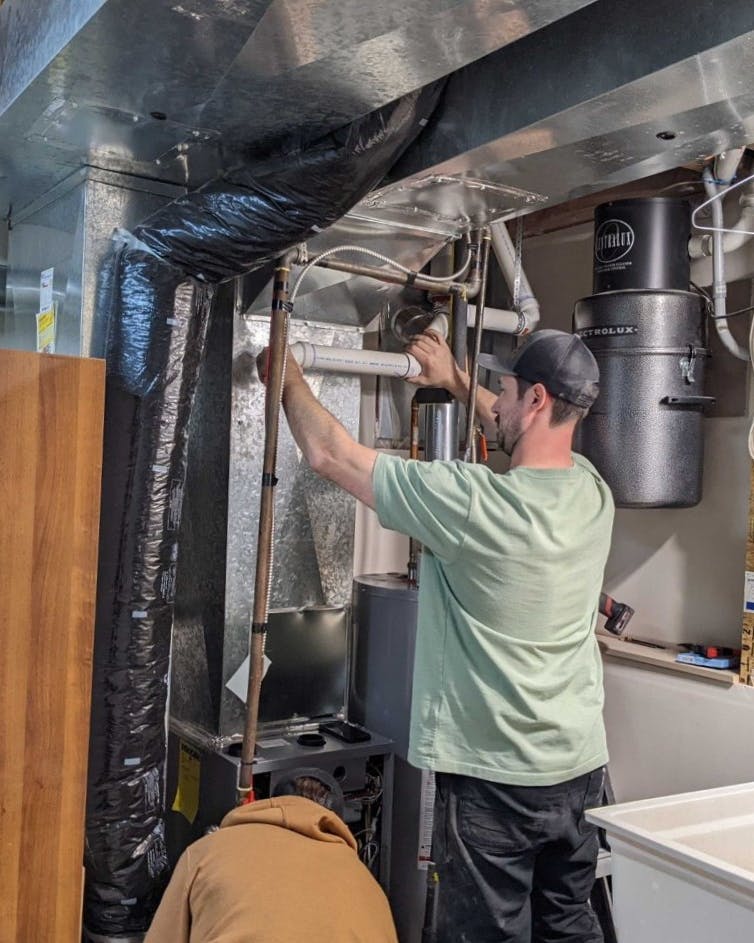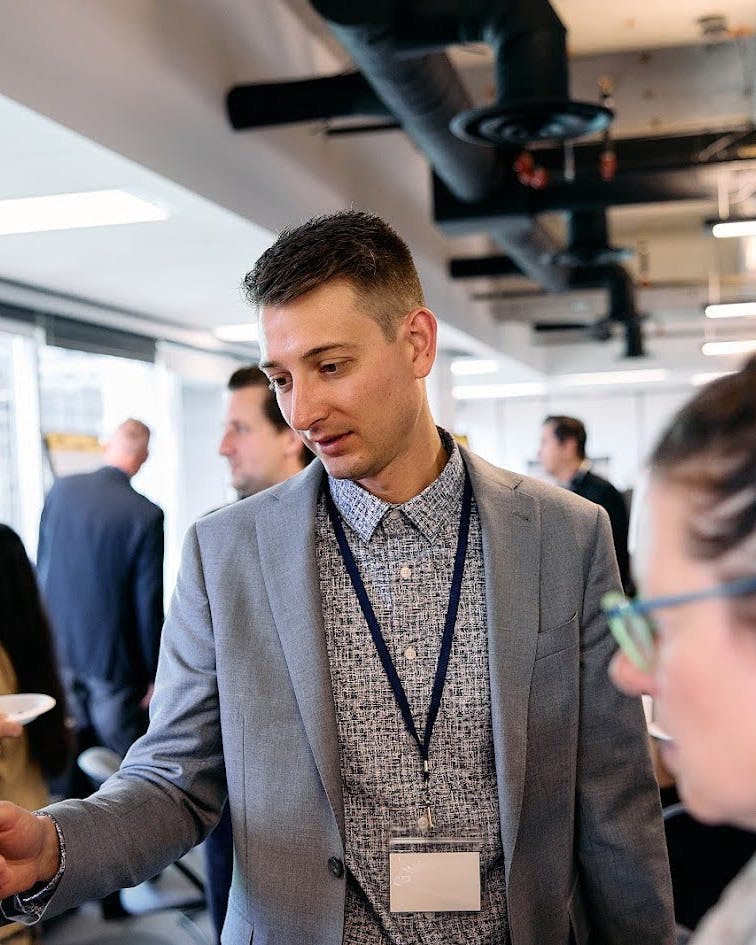Environmental groups and First Nations across Alberta are set to receive up to $600K in local grants

Alberta Ecotrust Foundation is proud to announce the recipients of its 2024 Environmental Impact Grant, which supports innovative and impactful projects that address Alberta's pressing environmental challenges.
Following a thorough two-stage application and review process, the Environmental Advisory Committee selected twelve projects to receive grants of $50,000 each. These projects address various environmental concerns in Alberta, particularly emphasizing the Foundation’s key focus areas: Nature-based Solutions and Conservation, Climate Resilience and Emissions Reduction, and Circular Economy initiatives.
“We're excited to announce our 2024 Environmental Impact Grant projects, each representing proactive responses to environmental challenges facing Alberta right now. These projects are taking on climate change, biodiversity loss, land use and conservation, Indigenous rights and land stewardship, and energy transition. They are also rooted in community and sustainability, offering tangible solutions,” says Lori Rissling Wynn, Director of Grants & Initiatives at Alberta Ecotrust Foundation. ”We are proud to support these projects and contribute to their successes.”
The projects were chosen based on their potential to make a significant impact on key environmental issues in Alberta, as well as their alignment with the Foundation’s mission and values.
“Trout Unlimited Canada would like to thank Alberta Ecotrust Foundation for supporting our Cutthroat In the Porcupine Hills Environmental Restoration (CIPHER) project. This funding will further our collaborative project to protect and restore habitat for Westslope Cutthroat Trout in the foothills of southwestern Alberta and improve climate resiliency for everyone on the landscape.” - Angela Ten, Management Biologist Trout Unlimited Canada
The recipients of the 2024 Environmental Impact Grant are:
Alberta Native Bee Council: Alberta Native Bee Monitoring and Stewardship Program
The Alberta Native Bee Monitoring and Stewardship Program is a five-year, collaborative, ecosystems-based approach to monitoring and conservation of native bees in Alberta, lead by the Alberta Native Bee Council (ANBC) in partnership with the Alberta Biodiversity Monitoring Institute (ABMI) and the National Bee Diagnostic Centre (NBDC). Province-wide monitoring of native bees will significantly improve our understanding of the diversity, abundance and ranges of native bees and use these data to inform a suite of conservation, outreach, and stewardship programming. The program engages a broad array of partners in an innovative approach to improving bee monitoring in Alberta.
All One Sky: Strengthening the Business Case: Information and Guidance to Value the Co-Benefits of Nature-Based Adaptation
Nature-based solutions (NbS) provide a cost-effective and flexible approach to building climate-resilient communities. In addition to reducing harm from worsening climate hazards, they simultaneously provide multiple co-benefits. However, NbS for climate action remains underused by communities due to unfamiliarity with their multi-solving potential and difficulties valuing benefits for the business case. This project seeks to develop knowledge products to overcome these challenges and help communities craft a strong case for scaling up investment in NbS. Funding is sought for two economic case studies in smaller Alberta communities to help unlock the potential for investment in NbS outside of the main cities.
Bow River Basin Council: Empowering Water Stewards with the Nakoda Youth Council
Water has significant importance to Indigenous communities. The Nakoda name for Morley is Mînî Thnî - “Cold Water.” The Bow River Basin Council, the Elbow River Watershed Partnership, and the Nakoda Youth Council are collaborating to secure water testing equipment for the youth council to monitor water quality in Mînî Thnî. Scientific equipment, regular training, and monitoring will empower these youth to be scientists and science communicators while supporting Indigenous data sovereignty. Scientific equipment is integral to measuring aquatic health but can also be a tool that inspires stewardship. When paired with Indigenous knowledge, it further enhances our understanding.
Biosphere Institute of the Bow Valley: Driving the Circular Economy in the Bow Valley & Alberta
The Biosphere Institute of the Bow Valley will expand its work to drive the Bow Valley’s circular economy. They will collaborate with municipalities, tourism and hospitality associations, businesses and event organisers as they expand their reusable cup program in Banff and bring this program to Canmore; create a Canmore “Library of things” based on Banff’s successful model; deliver ‘Share and Repair Fairs’ in Canmore, Banff, Exshaw, and Mînî Thnî; and leverage their prior ‘towards zero waste’ successes to develop and deliver the ‘Reduce, Re-use, and Recycle Roadmap’ to event organisers, bringing circular economy practices into large community events.
Ghost Watershed Alliance Society: Bio-engineering in the Ghost Watershed
The Ghost Watershed Alliance Society (GWAS) is a watershed stewardship group working collaboratively to improve watershed health. High sediment run-off rates from a large network of roads and trails and a loss of riparian vegetation due to the many stream crossings are major issues impacting the Ghost watershed. To prevent sediment from reaching streams, GWAS will be restoring riparian areas using bio-engineering techniques and engaging volunteers. The project goal is to reduce the number of sites in need of restoration. This project will be carried out in partnership with Trout Unlimited Canada, Cows and Fish and involve recreational user groups.
Living Lakes Canada: Establishing a Framework for Groundwater Monitoring in Alberta
Living Lakes Canada (LLC) is establishing a framework for community-focused groundwater monitoring in Alberta. Living Lakes will identify risks to key aquifers and prioritize monitoring methods to address community concerns and fill existing groundwater data gaps. This project will use the Oldman River Watershed as a pilot area, with the intention of expanding into the Bow River Basin and the rest of Alberta in the future. Public engagement surrounding groundwater awareness will be organized to increase freshwater literacy, discuss best practices, and to identify local groundwater concerns.
Piikani Lands Department: Repurposing Waste to Rejuvenate Prairie Grasslands
Through this project, Piikani Nation will change the narrative about its organic waste and introduce the concept of a circular economy to its membership. By strategically diverting organic waste away from landfills, they will be taking control over an untapped local resource to in turn generate a valuable resource that both supports the community’s needs in multiple ways and further develops their autonomy, resilience, and self-determination. Therefore, this project is best thought of as an “on-the-ground project” with the co-benefits of strengthening Piikani’s capacity and furthering locally identified biodiversity and land stewardship goals.
Project Forest: Siksika Nation Community Shelterbelt Program
The Project Forest Siksika Nation Community Shelterbelt Program is designed to harness the power of shelterbelts—a proven nature-based solution—to mitigate the impacts of climate change, sequester carbon, and take meaningful steps towards equitably distributing trees and their associated ecosystem services, to the people living on Siksika Nation. Shelterbelts will provide Siksika Nation with long-term environmental resilience to the effects of climate change, including mitigating extreme wind, trapping moisture, regulating temperatures, reducing the loss of topsoil, cleaning the air and water, creating habitat for wildlife, decreasing noise and increasing privacy from passing highway traffic, and providing spaces for traditional land-use activities.
TREC Charitable Foundation (Relay Education): Saddle Lake Solar Installation Training
The "Saddle Lake Solar Installation Training" project will take place on Saddle Lake 125 Reserve in August of 2024. Its goal is to train 20 community members from Saddle Lake Cree Nation in the installation and maintenance of both residential and commercial solar PV systems. The training will involve instruction from experienced Relay Education solar installation instructors in the assembly of solar PV systems, the acquisition of safety certifications from industry-recognized organizations, and coaching in maintaining healthy habits while working in a physically demanding industry from local solar installer and owner of Tribe Solar, Cameron Shirt.
Trout Unlimited Canada: Cutthroat in Porcupine Hills Ecological Restoration (CIPHER)
The CIPHER project will rehabilitate degraded Westslope Cutthroat Trout habitat in the Porcupine Hills. One major technique that Trout Unlimited Canada and their partners will utilize to accomplish this is low-tech process-based restoration; this low-cost technique will restore streams and surrounding riparian habitats by slowing water flow, reconnecting floodplains, and keeping water on the landscape longer. These installations will increase local water storage capacity, improve ecosystem health and biodiversity, and help to recover local Westslope Cutthroat Trout populations. Critically, they will also help buffer the impacts of flood, drought, and fire in streams throughout Alberta.
Woodland Cree First Nation: Restoration and Reconciliation: Protecting the Woodland Cree Muskeg - A Three-Prong Approach
The leadership of Woodland Cree First Nation is committed to preserving and conserving the substantial areas of muskeg that define its traditional land-use boundaries. Accordingly, the Nation is undertaking an aggressive three-pronged initiative that will achieve the following before the end of calendar year 2030: (i) complete a detailed and robust State of the Wetland inventory and classification of the muskeg as per Alberta's Wetland Classification System; (ii) develop and implement a thorough Muskeg Management Program that recognizes traditional knowledge and wisdom; and move forward in having the extant muskeg recognized formally as a natural carbon sequestration site.
Yellowstone to Yukon Conservation Initiative: Supporting the Establishment of Indigenous Protected and Conserved Areas in Alberta
In Alberta, vast portions of the Eastern Slopes lack permanent, legislated protection. Canada has committed to protecting 30% of lands by 2030, with new protections achieved in partnership with Indigenous governments and communities. This provides a critical opportunity to centre Indigenous voices, advance self-identified land-relation priorities of Indigenous groups, and build/strengthen relations between Indigenous people and the conservation sector in Alberta. In this second phase, they will continue to support Blackfoot Confederacy and Stoney Nakoda Nations’ conservation initiatives while engaging with allies/partners on decisions that threaten the region’s ecological integrity–advancing community-led conservation of Alberta’s source waters, habitat connectivity, and biodiversity.
Alberta Ecotrust is proud to support these projects. By advancing nature-based solutions, Indigenous-led conservation, climate resilience and emissions reductions, and circular economy, these projects will help preserve our ecosystems and promote a healthier and more sustainable future. The Foundation would like to thank its supporters, corporate and visionary partners, and volunteers for their continued support in helping turn positive intentions into meaningful actions.
Related posts
Explore our most recent posts.



